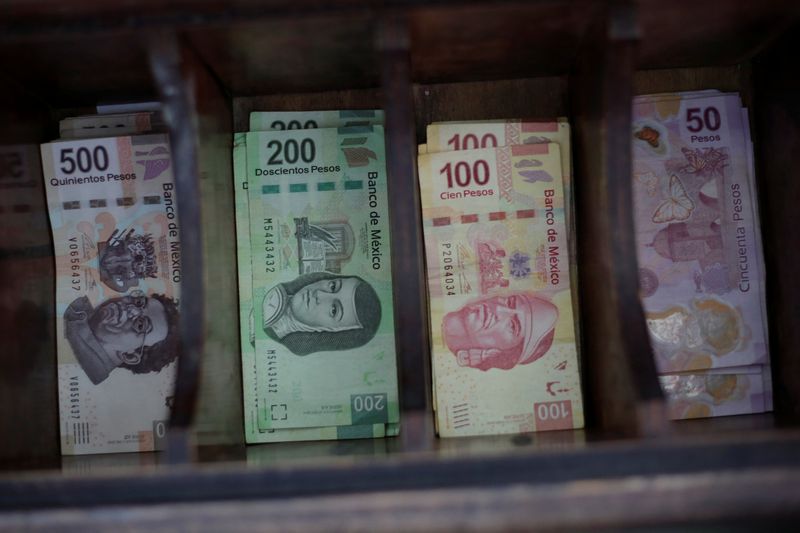By Karin Strohecker
LONDON (Reuters) – The Mexican peso tumbled more than 3% against the dollar on Monday after the ruling party scored a surprisingly strong election, showing and looking poised for a supermajority that markets fear could lead to constitutional changes and could reduce checks and balances.
Claudia Sheinbaum won a landslide victory in Sunday’s presidential election, as was widely expected. But the size of the gains for the ruling Morena party and its allies surprised markets, with some fearing it would pave the way for the group to push through constitutional reforms without opposition support.
The peso hit a new five-week low of 17.5020 per dollar, its worst decline since September 2020, LSEG data showed. By 1224 GMT, the peso had pared some of its losses to 17.4708 per dollar.
“In Mexico, the question is whether the Morena party has done so well that it could win a supermajority and try to pursue market-unfriendly policies of constitutional reform,” said Chris Turner, global head of markets at ING.
The latest losses have seen the currency weaken 2.4% since the start of the year, a sharp turnaround for the unit, which until recently was one of the few emerging market currencies to gain ground against a strong dollar .
There were also indications that Mexican stocks were expected to come under pressure, with the iShares MSCI Mexico ETF down 3.2%.
Sheinbaum, a climate scientist and former mayor of Mexico City, won the presidency with between 58.3% and 60.7% of the vote, according to a rapid sample count by the election authority, which is expected to be the highest voting percentage in the Democratic state of Mexico. history.
Securing a two-thirds supermajority in both houses of Congress “would allow Sheinbaum and Morena to pass constitutional changes, including those proposed by President Lopez Obrador ahead of the election,” said Jason Tuvey, deputy chief economist for emerging markets at Capital Economics.
In February, Lopez Obrador had proposed sweeping constitutional reforms, including measures to overhaul the judiciary, electoral law, pensions and environmental regulations.
Over the course of his term, Lopez Obrador had doubled the minimum wage, reduced poverty and overseen a rising peso and low unemployment levels – successes that made him incredibly popular.
Sheinbaum has promised to expand the social policies that fueled his popularity and triumph, but this will be a difficult task as he inherits a large budget deficit and low economic growth.
(Reporting by Karin Strohecker, graphics by Sumanta Sen; editing by Amanda Cooper and Bernadette Baum)

